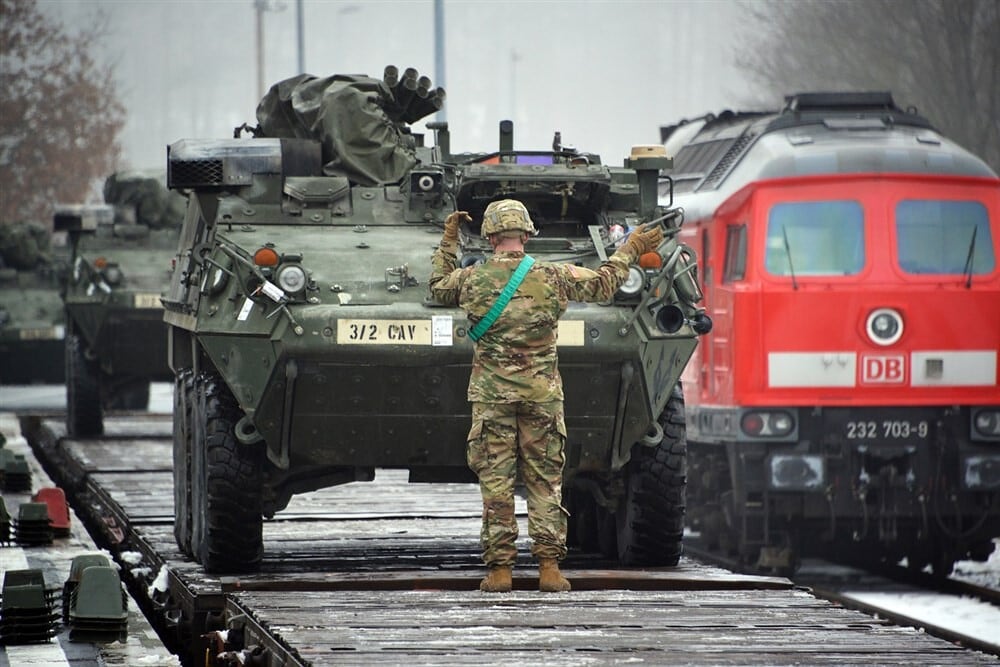COLOGNE, Germany – All planning related to the Trump administration’s reduction of troops from Germany is on hold while new Pentagon chief Lloyd Austin reviews the idea, according to U.S. European Command chief Air Force Gen. Tod Wolters.
The announcement follows hints by the new Biden administration that the decision to pull up to 12,000 troops out of Germany would be scrutinized by the new Pentagon team. Leaders in Berlin were caught off guard by the move last summer, as was the U.S. military chain of command, and officials here took being kept out of the loop as much as an affront as the actual drawdown itself.
All of the moves already put in to motion under the Trump plan, which includes relocating the headquarters of EUCOM and U.S. Africa Command from Stuttgart to Mons, Belgium, are “on freeze,” Wolters told reporters in a phone press conference Wednesday.
To be sure, it isn’t clear that any moves have taken place at all. Some observers have privately remarked that the military chain of command appeared to be slow-walking the implementation of the Trump administration’s surprise decision, which the then-president himself had admitted was hatched partly out of anger toward Germany.
Wolters today portrayed the planning thus far as such a convoluted process that measuring progress was near impossible.
“There were so many pieces and parts to the plan, we could probably sit here for weeks and guess on the depth and how far along we were,” he said when pressed on the matter. “In all cases, there were branches and sequels with multiple options.”
Wolters had previously tried to put a positive face on the Trump plan, as did other Pentagon leaders when they announced details last year.
“At the time, based on the guidance given, the options that were addressed in the public domain were the ones that we thought most clearly addressed the advantages,” he said today.
During their first phone conversation late last month, Austin and German Defense Secretary Annegret Kramp-Karrenbauer discussed the U.S. force posture in Germany, according to Pentagon spokesman John Kirby.
“What I would tell you is that the secretary made clear that he wants to take a look globally at force posture,” Kirby told reporters, referring to the two leaders’ conversation. “What he did assert to the defense minister was that whatever decision we make, we’ll do it in consultation with her and her government. There won’t be any surprises.”
Meanwhile, the EUCOM plans to proceed with the Defender Europe 2021 exercise later this year amid consideration for coronavirus safety measures, according to Wolters. The drill will see 30,000 allied forces from 26 participant nations exercise in about a dozen countries, spanning from the Baltics to Africa, he said. The idea is to “lift and shift” forces over long distances, he explained.
Sebastian Sprenger is associate editor for Europe at Defense News, reporting on the state of the defense market in the region, and on U.S.-Europe cooperation and multi-national investments in defense and global security. Previously he served as managing editor for Defense News. He is based in Cologne, Germany.




